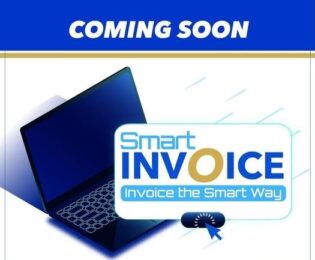Transformation of Zambia’s VAT Framework to Smart Invoice

The Impact of the Value Added Tax (Amendment) Act No. 27 of 2023
The Value Added Tax (Amendment) Act No. 27 of 2023 (“the Act”) represents a pivotal advancement in Zambia’s tax landscape, significantly reshaping the Value Added Tax (“VAT”) framework.
Digital Transformation
Central to this transformation is the introduction of the smart invoice system by the Zambia Revenue Authority (“ZRA”), mandated by the Value Added Tax (Electronic Invoicing System) Regulations, Statutory Instrument No. 58 of 2023. This regulation replaces traditional electronic fiscal registers, signatures, and devices with a modern electronic invoicing system. The Smart invoice system is scheduled to take effect on 1st July 2024. This initiative underscores Zambia’s commitment to leveraging technology for enhanced tax administration.
Enhanced Data Management
The smart invoicing system mandates registered taxpayers to adopt electronic payment modes and transition to electronic invoicing. This system ensures that all invoice data is efficiently managed and promptly transmitted to the ZRA, thereby streamlining compliance and reducing administrative burdens.

Enforcement & Penalties
Non-compliance penalties will be enforced for taxpayers failing to transition from electronic fiscal devices to the Smart Invoice platform.
VAT Legal Framework
VAT, as a consumption tax, is levied on goods and services at each stage of the supply chain where value is added, culminating in its imposition on the final consumer. The principal legislation governing VAT in Zambia is the Value Added Tax Act, Chapter 331 of the Laws of Zambia, which underwent amendments through the Act to accommodate the introduction of smart invoicing.
Amendments to the VAT
Key amendments introduced by the Act include:
- enhancing the efficacy of the electronic invoicing system.
- addressing various formats and transmission requirements of electronic invoices.
- establishing protocols for authentication and storage of digital invoice data.
These amendments reflect Zambia’s proactive approach to adapting to technological advancements in tax administration, ensuring the continued relevance and effectiveness of the legal framework.
Benefits of the Smart Invoicing System
The newly introduced smart invoicing system offers several benefits to taxpayers:
- Diverse Invoicing Options: Tailored to accommodate various business models.
- Simplified Filing Processes: Reducing complexities and lowering compliance costs through features such as pre-filing.
- Enhanced Transaction Monitoring: Facilitating improved stock monitoring and supply chain management capabilities.

Strategic Objectives
The primary objectives of implementing the electronic invoicing system include
- minimizing revenue loss,
- strengthening data analytics for compliance enforcement
- simplifying stock management procedures.
Importantly, the system enhances convenience by enabling electronic interactions, eliminating the need for physical visits to ZRA offices and thereby promoting efficiency and accessibility in tax administration.
Conclusion
The introduction of the electronic smart invoicing system marks a significant milestone in modernizing tax administration in Zambia. By embracing smart invoices, ZRA aims to enhance revenue collection, enforce compliance more effectively, and empower businesses with streamlined administrative processes. This initiative not only reduces the compliance burden for taxpayers but also fosters transparency and efficiency in the taxation ecosystem.

This article is meant to be an informative piece only and can not be used in any other way. For more information and Legal counsel on Tax Compliance please contact:
+260770612223
mchitanga@mbplegal.co.zm
Or
info@mbplegal.co.zm
Related Articles
-
30 Jul
-
15 Jul



